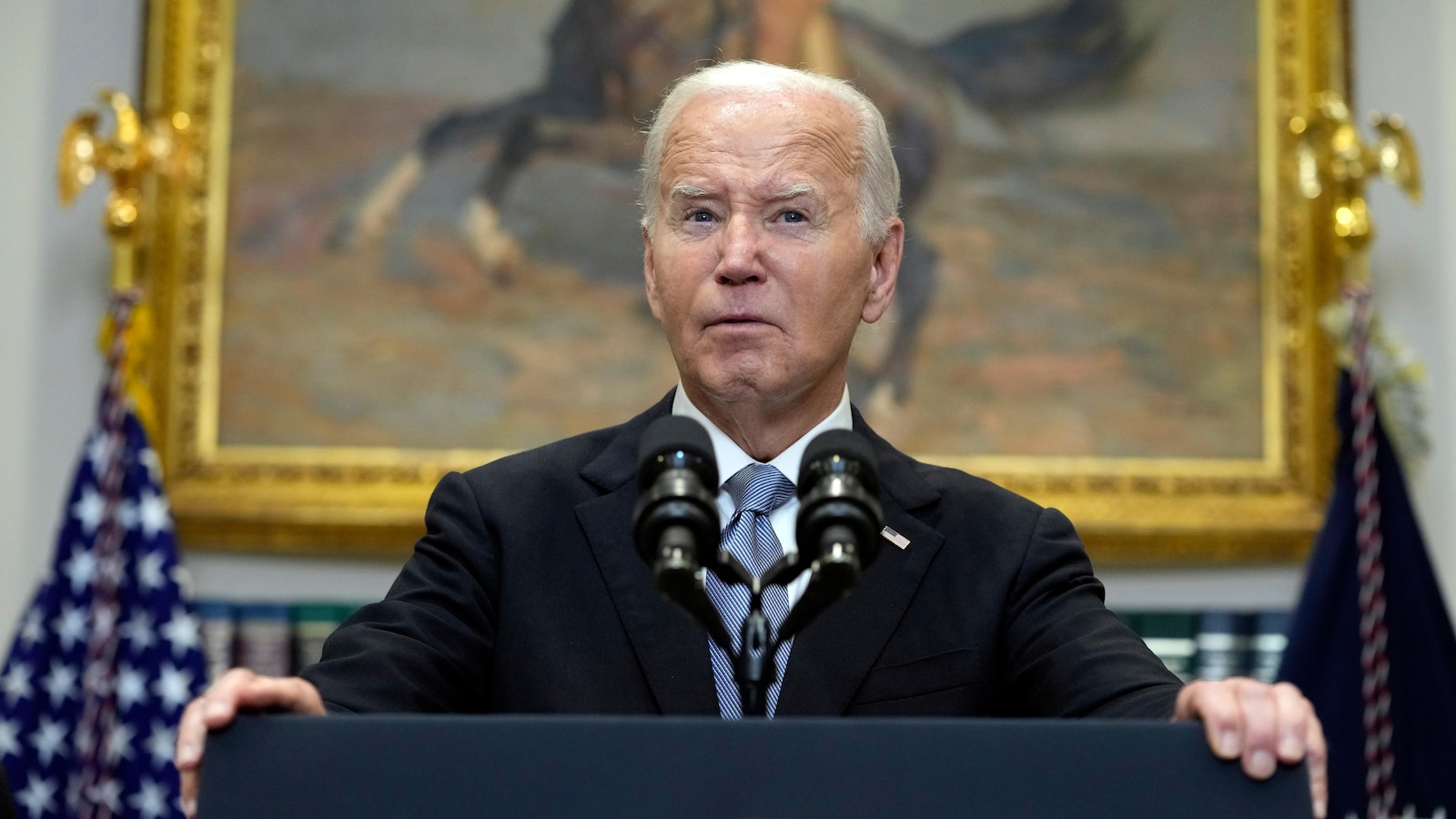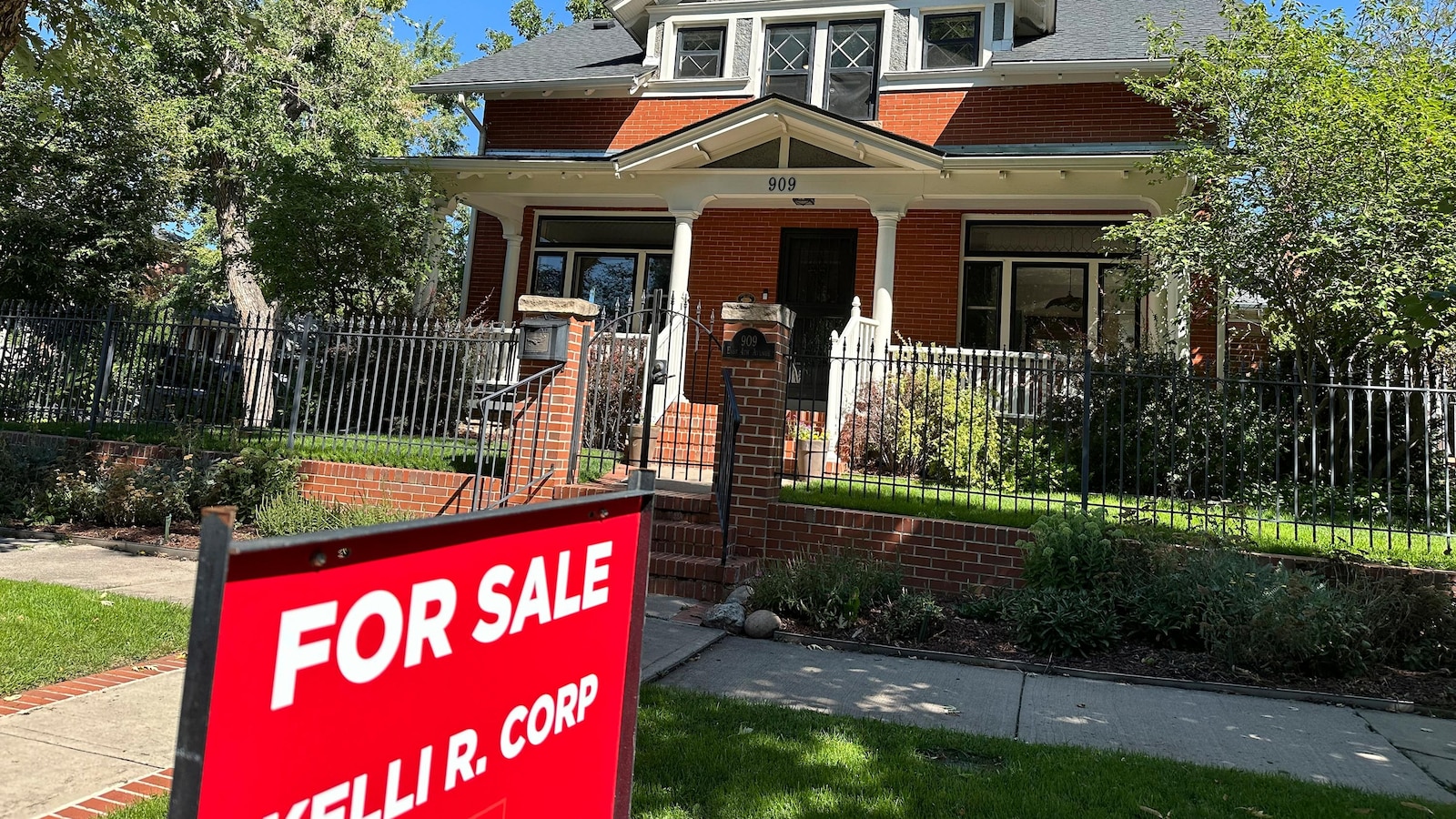
WASHINGTON — President Joe Biden is ready to propose a 5% cap on annual rent increases for tenants of major landlords as he tries to show he’s doing something about the high cost of housing, according to a person familiar with the plan.
The proposal, to be announced while the president visits Nevada on Tuesday, is being championed by Biden in the middle of a tense presidential campaign and a time when housing costs have been a major driver of overall inflation.
But the plan would require solid Democratic control of Congress to become law. Additionally, most policymakers have said the best way to limit housing costs would be through more construction and changes to land use regulations.
The person familiar with the plan spoke on the condition of anonymity because the proposal has not yet been formally announced.
Biden himself previewed the announcement at his NATO news conference Thursday, folding it into comments that blamed inflation on companies trying to maximize their profits in the aftermath of the pandemic.
“It’s time things get back in order a little bit,” Biden said. “If I’m reelected, we’re going to make sure that rents are kept at 5% increase.”
The Washington Post first reported Monday the details of the plan, which would only apply to landlords who own 50 or more units. The price cap would not apply to units that have yet to be built.
White House officials declined to comment.
The median national rent was $1,411 a month in June, up from roughly $1,150 in early 2021 when Biden became president, according to Apartment List.
Asking prices for rentals jumped in the aftermath of the pandemic and have since cooled, but the Harvard University Joint Center for Housing Studies found in its most recent report that half of renters were “cost burdened” because they spend more than 30% of their income on housing and utilities.
In recent months, housing has been a primary contributor to keeping the consumer price index elevated at 3% annually. Inflation has been a fundamental obstacle for Biden politically as he competes against Donald Trump, the former president and Republican nominee.
The president has proposed policies designed to increase home construction, but industry representatives were quick to criticize the rent cap as ineffective for addressing the overall shortage and possibly leading to fewer habitable units than the country would otherwise have.
“This is not going to create a single unit of housing — which is what is needed to create more housing opportunities for Americans,” said Sharon Wilson Géno, CEO of the National Multifamily Housing Council. “This is really a campaign-driven piece of rhetoric.”
Géno noted that landlords need to be able to keep up with costs such as maintenance, insurance and state and local taxes. If those costs exceed what they can charge for rent, the risk is that landlords will do less to maintain their properties and tenants could be worse off.
“What does that mean — the quality of the housing suffers,” she said.
But affordable housing advocates said that if Biden’s proposal had already been in effect, it would have likely reduced evictions and homelessness.
“The recent unprecedented increases in homelessness in communities across the country are the result of those equally unprecedented — and unjustified — rent hikes of a couple years ago,” said Diane Yentel, president and CEO of the National Low Income Housing Coalition. “Had such protections against rent gouging been in place then, many families could have avoided homelessness and stayed stably housed.”
In response to the ongoing inflation crisis affecting the United States, President Joe Biden has proposed a bold new measure aimed at providing relief to renters across the country. The proposal, which would cap annual rent increases at 5%, is part of a broader effort to address rising costs and ensure that Americans can afford to keep a roof over their heads.
The decision to implement a cap on rent increases comes as inflation rates continue to soar, with prices for goods and services skyrocketing at levels not seen in decades. This has put a significant strain on households, particularly those who are already struggling to make ends meet. With rent being one of the largest expenses for many Americans, the Biden administration believes that limiting annual increases to 5% will help alleviate some of the financial burden facing renters.
The proposed cap on rent increases is not without its critics, however. Some argue that it could have unintended consequences, such as discouraging landlords from making necessary repairs and improvements to their properties. Others worry that it could lead to a decrease in the supply of rental housing, as landlords may be less inclined to invest in new properties if they are unable to raise rents to cover their costs.
Despite these concerns, many experts believe that the benefits of the proposed cap outweigh the potential drawbacks. By providing renters with more stability and predictability in their housing costs, the measure could help prevent displacement and homelessness among vulnerable populations. It could also help to slow the rapid gentrification and displacement of low-income communities that often accompanies skyrocketing rents.
In addition to the cap on rent increases, President Biden has also proposed other measures to address inflation and support struggling households. These include increasing funding for affordable housing programs, expanding rental assistance programs, and investing in infrastructure projects that will create jobs and stimulate economic growth.
Overall, the Biden administration’s proposal to cap annual rent increases at 5% represents a significant step towards addressing the challenges posed by inflation and ensuring that all Americans have access to safe and affordable housing. While there may be some concerns about the potential impact of the measure, its potential benefits for renters and communities in need cannot be overstated. It remains to be seen whether the proposal will be implemented and how effective it will be in providing relief to those most affected by rising housing costs.


